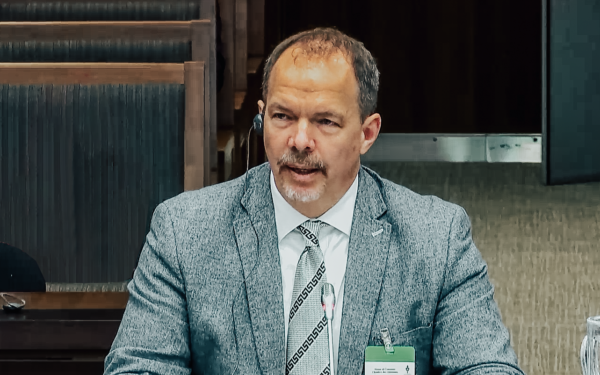U.S. government regulator, the FCC, is debating overturning net neutrality rules. Should this decision pass, which seems likely, the FCC is prioritizing the financial bottom line of global telecommunications at the expense of internet users, new technologies and start-ups.
U.S. government regulator, the FCC, is debating overturning net neutrality rules. Should this decision pass, which seems likely, the FCC is prioritizing the financial bottom line of global telecommunications at the expense of internet users, new technologies and start-ups.
As a member of the global internet governance community and advocate for a better online Canada I can say, unequivocally, that net neutrality contributes to an internet where innovation thrives. A strong case can be made that we would not have the free, open, generative, creative internet we have today were it not for net neutrality.
Net neutrality is the principle that all content on the internet is treated equally. Canada’s regulator, the CRTC, has stood firmly in favour of net neutrality in our country, implementing regulations to protect it. The CRTC established a net neutrality policy a decade ago. As recently as April, the CRTC released strict guidelines on zero rating practices in light of its ruling against Quebec-based Videotron’s unlimited music streaming offering for its premium customers. Canada has the right approach to net neutrality and we need to keep it that way, especially given that Canada’s large internet service providers are also content owners, such as Bell’s ownership of CTV.
Net neutrality levels the playing field. Without it, global telcos will divide and control the internet and the content we access. The FCC is kowtowing to the telecommunications industry and internet users will suffer the consequences.
This affects us beyond the entertainment industry, but let’s use the traditional cable model as an example of what might happen in a non-net neutral world. With cable television, consumers are forced to pay for content they don’t want just to get the content they do want. If Game of Thrones is your favourite show, you need a pricey cable package that includes HBO. Of course, you’re also paying for other stations the cable company favours. This is the future of the internet without net neutrality. The big telcos will make some content readily available while sidelining others, taking away the choice consumers currently enjoy.
Imagine if net neutrality had not been in place during the rise of well-known content providers Netflix, Spotify or Twitter. These platforms may not have made it in the industry if relegated to the slow lane while others, likely poor substitutes, reaped the benefits of a telecommunication firm’s favour.
What innovations will we never experience because they no longer have equal access to the plumbing and pipes of the internet? The only winner in this walled garden model of the internet are big telcos.
The internet ecosystem includes many players: the Canadian Internet Registration Authority (CIRA) and others in the domain industry, content providers, small and medium sized internet service providers, and both non-profit and for-profit value creators including Google. The telecommunications industry is but one player, albeit a powerful one, in a diverse ecosystem. The vast majority of the internet community believe in net neutrality principles and with one bad decision, the majority of the community is put aside for the benefit of one.
The FCC’s decision, led by its chairman Ajit Pai, a former Verizon executive, is a cautionary tale. When we get comfortable and believe that the way things are now will remain this way forever, someone with differing interests and the will to make changes can bring it all to an end. Whether it’s a crack in democracy like we are seeing in the U.S., or cracks in the internet itself, complacency can be a killer.
Sadly, we’ll get front row seats as we watch the internet in the U.S. fracture, and it’ll show us exactly what can happen if we let this backwards mindset spread.
The internet is part of our everyday existence and a source for information, economic development, social activity, entertainment and so much more. It’s become the backbone of our society, linking us to the world beyond our front doors. Net neutrality is one of the factors that make the internet so valuable. With this in mind, we must fight to keep it, even as our neighbours to the south lose out.
Byron Holland (MBA, ICD.D) is the president and CEO of the Canadian Internet Registration Authority (CIRA), the national not-for-profit best known for managing the .CA domain and developing new cybersecurity, DNS, and registry services.
Byron is an expert in internet governance and a seasoned entrepreneur. Under Byron’s leadership, CIRA has become one of the leading ccTLDs in the world, with over 3 million domains under management. Over the past decade, he has represented CIRA internationally and held numerous leadership positions within ICANN. He currently sits on the Board of Directors for TORIX, and is a member of the nominations committee for ARIN. He lives in Ottawa with his wife, two sons, and their Australian shepherd, Marley.
The views expressed in this blog are Byron’s opinions on internet-related issues, and are not necessarily those of the organization.




